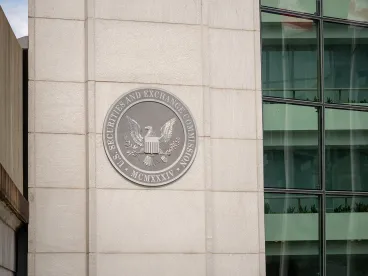On June 23, 2021, the SEC announced that Guggenheim Securities, LLC (“Company”) agreed to settle charges that it violated Rule 21F-17 by including language in its compliance manual and training materials that allegedly prohibited employees from contacting regulators without prior Company approval. Without admitting or denying the findings in the SEC’s order, the Company consented to a cease-and-desist order, a censure, and a civil penalty of $208,912.
Rule 21F-17, which was adopted by the SEC after the passage of the Dodd-Frank Act in 2010, prohibits actions that impede individuals from reporting a possible securities law violation to the SEC.
The SEC alleged that from 2016-2020, the Company’s compliance manual stated that:
Employees are also strictly prohibited from initiating contact with any Regulator without prior approval from the Legal or Compliance Department. This prohibition applies to any subject matter that might be discussed with a Regulator, including an individual’s registration status with FINRA. Any employee that violates this policy may be subject to disciplinary action by the Firm.
According to the order, the compliance manual was updated annually and employees were required to sign an acknowledgement that they would adhere to its policies. The SEC further alleged that in 2018 and 2019, the Company provided annual compliance trainings that included similar language.
Notably, the SEC stated that it was unaware of any instances in which an employee was prevented from communicating with SEC staff about potential violations or in which the Company took action to enforce the compliance manual’s restriction or prevent communications. After being contacted by the SEC, the Company removed the language quoted above and added a provision notifying employees of their right to report violations and to participate, assist, or testify in any investigation by a governmental agency.
As we previously reported (see here and here), the SEC brought multiple actions to enforce Rule 21F-17 during the Obama administration, focusing primarily on allegedly restrictive language in severance agreements, but only one such action during the Trump administration (see here and here). This recent action may signal renewed scrutiny by the SEC under the Biden administration of companies’ compliance with Rule 21F-17.





 />i
/>i

